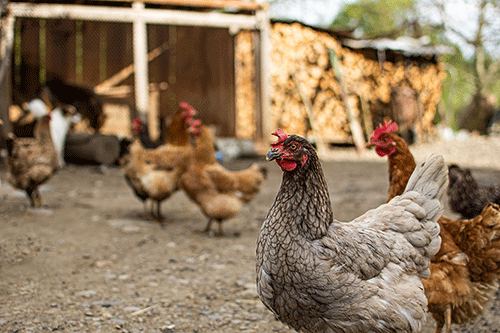The rapid spread of bird flu (HPAI) in South Africa has provided Namibian poultry producers with a small window of opportunity to access that lucrative market before the massive SA industry recovers from the devastating outbreak. However, the lack of a bilateral agreement to export poultry and related products may hamper this rare opportunity.
Namibia’s poultry industry, estimated to have generated some N$3 billion over the last three years as per the Namibian Agronomic Board, pales in comparison to more than the N$50 billion South Africa (SA) generated from poultry meat alone in 2021.
“We have realised though that there is no agreement between the two countries for Namibia to export to SA, as this has never happened in history,”was the response to New Era by Poultry Association chairman Rene Werner.
He said the suspension of poultry imports from SA has “not really” impacted the price or stock levels that much “as the importers have other options to import from alternative countries”. However, the informal market “might see a slight price correction”.
“We have received the call from SA to try to help and send them eggs and poultry meat, if we can. This is an opportunity for local producers to send their excess stock at an acceptable price,” the chairman stated.
He continued that local producers have engaged the Directorate of Veterinary Services (DVS) to expedite a solution to seize the opportunity as an urgent matter.
“This window of opportunity will only be open for a short while before it closes again after SA recovers from the devastating effects avian influenza had on their industry this year,” added Werner, who is also a managing partner at Wentscher Poultry Farm in the Okahandja area.
At the end of September, Namibia’s chief veterinary officer, Dr Albertina Shilongo, announced the suspension of the importation of poultry products from South Africa due to a severe spread of HPAI in that country’s commercial poultry industry. She noted that the suspension was necessitated to reinforce control measures to prevent the possible introduction of HPAI into Namibia through poultry and poultry products.
Reports from South Africa’s veterinary authorities indicate new HPAI outbreaks from April 2023 to September 2023. These were reported in various types of commercial chickens in the provinces of Kwazulu-Natal, Western Cape, Free State, Gauteng, Limpopo, Mpumalanga and North-West.
Local economist Mally Likukela has cautioned of a possible inflationary impact resulting from the poultry ban if supplies from other sources are not guaranteed. This would result in a shortfall which might push up inflation that would impact consumers.
“This, however, is a double-edged sword in that while shortages may result in higher prices for chicken products, it also presents an opportunity for local producers to develop the industry and stop being the conveyor belt for South African farmers,” he reasoned.
South Africa is in the midst of one of its worst bird flu outbreaks that has seen millions of chickens being culled over the last few weeks. According to the South African Poultry Association, an estimated 20-30% of the country’s entire chicken stock has been culled. This has affected chicken stocks and eggs across SA, where that country’s largest producer noted the outbreak had ‘ravaged’ a sector already burdened by rising costs and a never-ending electricity crisis.
– ebrandt@nepc.com.na



